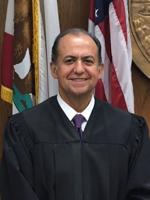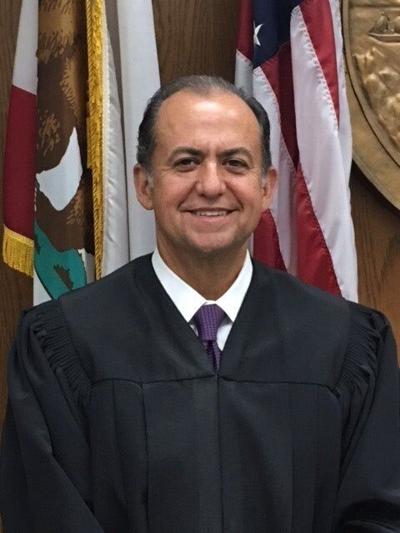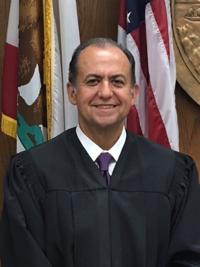
California Appellate Justice Thomas Delaney
SANTA ANA, CALIFORNIA - A California state appeals panel says a group of parents can't sue an outdoor education center in the San Bernardino Mountains for allegedly compelling their fifth grade students to participate in gender identity discussions without parental knowledge or consent during a multiday overnight science camp.
In the ruling, the justices with the Fourth District Court of Appeal said the gender-based discussions are protected speech on "matters of public interest" and are shielded from lawsuits by a California law which forbids using lawsuits to prevent such speech, even if they involve adults speaking with children in controlled environments.
One justice went further, saying such lawsuits should be kicked out of court, lest they "foster" anti-LGBTQ discrimination in society and the law.
A group of Orange County families sued the Running Springs-based Pali Institute alleging negligent and intentional infliction of emotional distress after fifth-grade students came home from camp and said “counselors of unknown and ambiguous gender” referred to themselves with they/them pronouns, asked the students to state their own preferred pronouns “and taught students various matters pertaining to transgendered identification and sexual identity.”
The students also claimed they were made to sleep in a dorm with only one counselor who didn’t specify a gender and couldn’t call their parents to discuss concerns.
According to court documents, the science camp had been organized through the children's public school district.
Pali asked Orange County Superior Court Judge Nathan Vu to strike the complaint based on a state law governing strategic lawsuits against public participation, or SLAPP, arguing issues of gender expression and identity are matters of public interest. Vu denied that motion, finding the complaint’s allegations didn’t involve the type of activity the law protects.
In arguing against dismissal, the families didn’t contest whether the counselors’ words were protected but insisted that issue was incidental to the larger concern of disclosure and inhibiting children from contacting parents. Vu determined the anti-SLAPP law didn’t apply and therefore didn’t examine the minimal merits of the families’ claims. He did, however, rule on evidentiary objections from both sides and denied the families’ request to be compensated for legal fees, finding Pali’s dismissal motion wasn’t frivolous or intended to delay proceedings.
Pali appealed, and the families then cross appealed, to the California Fourth District Appellate Court.
Justice Thomas Delaney wrote the opinion, filed Aug. 13; Justices Joanne Motoike and Maurice Sanchez concurred. Delaney also wrote a special opinion.
“With the amount of public discourse in the recent years at all levels of society nationwide —from government to local communities and everything in between — concerning gender identity, the topic and matters related to it (e.g., use of personal pronouns) are undoubtedly issues of public interest,” Delaney wrote, noting U.S. Supreme Court guidance on activity protected under anti-SLAPP laws.
The panel observed the families didn’t dispute whether gender identity is a public interest issue nor did they challenge free speech rights. Delaney said the families incorrectly framed their protected activity analysis as well as their claims.
“We must first identify each claim for relief pled in the complaint, without being constrained by the way the complaint structures each cause of action,” Delaney wrote. If certain claims rely on allegations only partially involving protected activity, he continued, “we disregard the unprotected acts and reach the second step of the anti-SLAPP analysis with respect to the claims arising from protected activity.”
By recognizing some of the emotional distress allegations rely on things the students said camp counselors discussed, the panel said, the families undermined their argument the intentional infliction claim is based generally on Pali’s lack of disclosure of camp topics. The claims sound in particular subject matter, and that subject matter is protected activity.
The families also sought to impose liability for intentional infliction on the policy of not letting students call home and “expressly represent that claim has no connection to gender identity related matters,” Delaney wrote. “To the extent these claims — including any alleged emotional distress — are unconnected to the subject matter of anything that took place at camp, they do not arise from protected activity. Thus, they may not be stricken pursuant to the anti-SLAPP statue.”
Regarding the negligent infliction claims, the panel said the families’ concerns about “age-inappropriate content” demonstrate at least a partial liability link to gender identity issues. But Pali didn’t address the part of the complaint “concerning sleeping arrangements and the failure to disclose information about camp counselors” with regards to anit-SLAPP protections, Delaney wrote, meaning those allegations should survive.
“The second step of the anti-SLAPP analysis requires evaluating whether a plaintiff has met its burden of demonstrating the claims which arise from protected activity are legally sufficient and factually substantiated,” Delaney wrote, adding the record shows the families did not meet that burden.
Although Judge Vu accepted testimony from one child’s mother based on what her daughter said, the panel found the bulk of her declaration “inadmissible hearsay,” such as descriptions of “certain incidents that supposedly happened at camp, including interactions the daughter and others had with camp staff. It also relayed various purported impacts of the experience on the daughter, including the development of ‘a phobia of being alone’ and the undermining of her faith in adults.”
The panel said the families didn’t identify an applicable exception that would allow the child’s remarks to remain on the record, and absent other useful evidence, the minimal merit of the claims isn’t demonstrated and Judge Vu should’ve granted the anti-SLAPP motion as regards claims stemming from protected activity.
Delaney further explained the complaint doesn’t allege any conduct that could rise to the level of “sufficiently outrageous” as required to establish the intentional infliction claim or how the circumstances establish grounds for the negligent infliction claim. Beyond that, “existing California public policy precludes such potential liability,” he wrote, as Pali cited state laws protecting gender identity, including anti-discrimination legislation affecting schools and other entities.
On remand, the panel said, Judge Vu will vacate his order denying the anti-SLAPP motion and grant it related only to the claims that “arise from allegations concerning gender identity related activity.”
In his special opinion, Justice Delaney said the liability the plaintiffs “seek to impose is legally unavailable for reasons beyond a mere conflict with state legislative policy.”
Delaney said such lawsuits should be blocked from court because they would "foster" anti-LGBTQ discrimination and give "legal effect" to those who harbor anti-LGBTQ bias.
Allowing plaintiffs to bring emotional distress lawsuits based on conversations "aimed at establishing a more inclusive school environment would cast a dark shadow over a matter through which people seek to express their subjective, deep-core sense of self," Delaney wrote.
"It would convey a message of intolerance of those perceived as different, and it would work to foster discriminatory attitudes towards them.
"As history teaches us, even though such biases may nevertheless persist in society, the law simply cannot give effect to them.”
The Pali Institute is represented by Horvitz & Levy, of Los Angeles, and Olson Law Group, of Woodland Hills.
The families are represented by Lex Rex Institute, of Long Beach.




